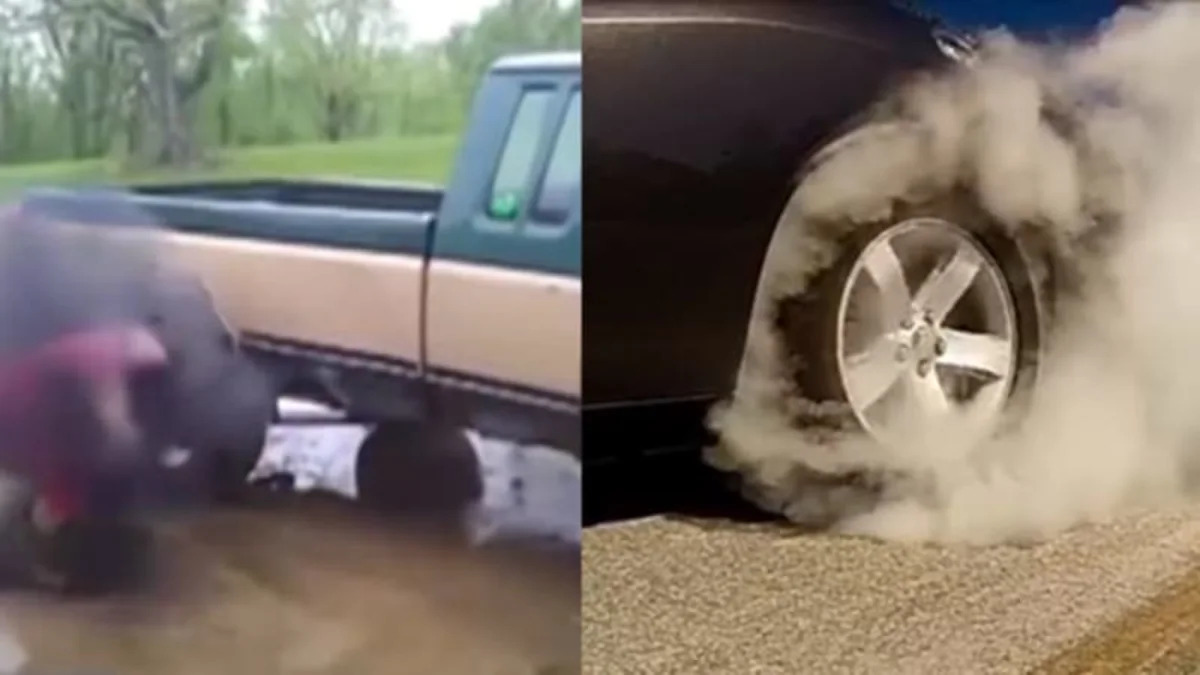With social, political and ecological concerns all wrapped up into one made-for-the-Internet phenomenon, there's no question that "rolling coal" has taken over the airwaves in the last few weeks. As many before me have pointed out, this practice isn't a new one, but renewed interest in (or horror at the exercise of) has flooded many of our feeds with terrifying photos, careening op-eds and viral videos.A cursory Internet search reveals that both kinds of 'smoke' have some pretty scary ingredients.
If you're like me, one of the very first responses to said videos was probably along the lines of "that can't be good for you." Whether believing it an expression of personal freedoms, or with some notion of "sticking it to" those with opposing social mores, the so-called coal-rollers have got to know that they're exposing people to a serious health risk, right?
After consuming more than a few rolling-coal videos, I also began to wonder just where the practice stacked up, from a human heath perspective, versus a the more-common car enthusiast practice of laying a patch, smoking tires, lightin' 'em up, etc. In other words, is burning rubber any better for you than rolling coal?
A cursory Internet search reveals that both kinds of 'smoke' have some pretty scary ingredients. Diesel fumes consist of dangerous polyaromatic hydrocarbons, a lot of sulfuric acid and inorganic bits and pieces picked up from fuel and motor oil. Ignited rubber, meanwhile, discharges airborne latex along with traces of carbon black, oil, sulfur, steel and other metallic elements.
Not having a clue what any of that actually means for air-sucking humans, I reached out to friend of Autoblog, Dr. Scott McDonnell, a cancer researcher and senior scientist at a large pharma company. Careful to point out that the question of "which is worse?" is a complicated one, McDonnell was able to shed a bit of light on the relative toxicity of burnt rubber and rolled coal."Both are bad, very bad." – Dr. Scott McDonnell
"First off, " McDonnell told me, "both are bad, very bad."
Apparently the World Health Organization has listed both diesel exhaust and the whole rubber industry as "Group 1" carcinogens, meaning, "either specific components or the mixtures have been directly linked to causing cancer," says Scott. He goes on to point out that, "the science is settled on many of these," and "we even know the mechanism of action through which these components act to cause cancer."
The good doctor goes into a lot more detail, but the long and short of it is that both substances can hurt a person in one of two general ways: direct damage or mutation to your cells' DNA, and indirect damage by way of organic particles penetrating deep into one's lung tissues. The former can lead to a chain of events that directly causes cancer formation, while the latter can create a chronic inflammatory state that is "advantageous" for cancer growth, and serve as the jumping off point for asthma, chronic bronchitis and emphysema.
So the truth is that both peeling out and blowing your stack can have a seriously deleterious effect on your neighboring homo sapiens, but the key to true danger lies in the concentration. McDonnell admits that exposure to both substances is difficult to avoid in industrialized parts of the world, but "most of us have very limited and diluted exposure to them." With that said, McDonnell – and anyone that has seen the YouTube videos I have – points out that rolling coal may up the exposure ante in a terrifying way.Both peeling out and blowing your stack can have a seriously deleterious effect on your neighboring homo sapiens.
"Practices such as 'rolling coal' intentionally expose people to very high concentrations of these dangerous substances," says McDonnell. "Unfortunately many of the health effects may not manifest until years later, providing a pretty poor deterrent."
So, at least in terms of automotive applications (i.e. you don't work next to a tire fire), the terrifying tradition of rolling coal onto a neighboring driver, cyclist, pedestrian (or in some cases your friend or yourself), is a lot more worrisome than the occasional patch laying. (Though, given what we've learned, it might be advisable for local drag-strip workers to get some protective gear.) As for coal rollers, consider the sickness you might be doling out the next time you think about blasting the Prius in the lane next to you – we're breathing over here.


Sign in to post
Please sign in to leave a comment.
Continue